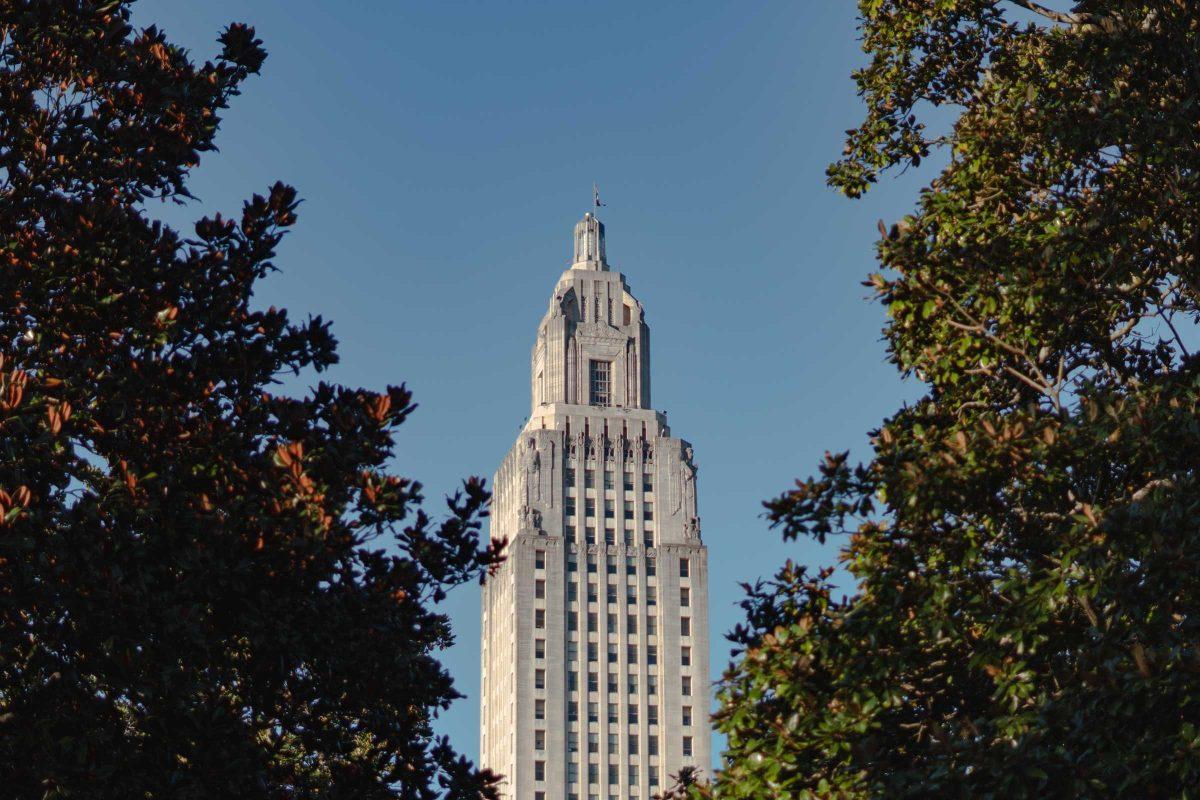Rep. Barry Ivey, a Republican from Central, lambasted the state legislature for its endemic defects in a Feb. 16 speech. Ivey’s frank assessment of state politics was a rare moment of reflection in the Louisiana Capitol and a long-overdue expression of how everyday Louisianians feel about our government.
The speech came after the state house cowardly tabled—rather than voted on—Ivey’s Supreme Court redistricting bill. After 25 years with unchanged maps, the bill proposed creating a second majority-minority district that followed the state’s northern border, stretching from East Baton Rouge to Caddo.
Instead of conforming to conventionality or minimizing Louisiana’s plight, Ivey’s eight-minute moment acknowledged reality, emphasized risks and laid blame where it was due.
“We’re playing the politics, we’re too busy focusing on the things that don’t matter,” Ivey said. “It’s about keeping the status quo that’s the most failed status quo in the nation because we don’t want to upset the apple cart.”
Playing politics is as Louisiana as Mardi Gras and Tony Chachere’s. Corruption, questionable ethics and underhanded pursuits are the trinity that flavors our state’s government gumbo.
Former Gov. Edwin Edwards faced federal charges twice and served eight years in prison tied to the legalization of gambling. The FBI found thousands of dollars hidden in pie boxes in former Congressman William “Bill” Jefferson’s freezer before he was convicted on bribery charges.
A century ago, Huey Long and the Old Regulars before him enriched themselves and their allies through government. Politicians and industrial interests vied for control over state power. The list goes on, and it’s never stopped growing.
Although, today, Louisiana is less flagrant as it continues its most favored—or hated, depending on whether it hurts you—tradition. There is a fully-stocked arsenal of tools to wield.
“We don’t debate issues—we have everything pre-planned, organized,” as Ivey put it. “We’ve got the political machines operating full throttle all the time.”
Just as they influenced the redistricting session, these political machines will wield their power in much the same way, except across an even wider variety of bills. With the regular session fast approaching, the political machines are already in overdrive. But there is also another powerful structure at work—one that Ivey also denounced directly.
“Look at every bill that’s passed in this last year,” Ivey said. “What you’ll find is if it isn’t backed by deep-pocket, corporate special interests, it didn’t have much of a shot, but that’s okay—we’re Louisiana, we’re going to keep on keeping on.”
It’s not unreasonable to think that the story of special interests this year will be the same. In fact, it will only be magnified. The redistricting session offered the Legislature a loophole to work with monied interests—and what legislator doesn’t enjoy a loophole?
In regular sessions, legislators cannot fundraise. Except, the redistricting occurred in special session—a distinction lawmakers willingly exploited. In total, 57 legislators held events sponsored by at least nine special interest groups, though there may be more because eight fundraisers did not have a listed sponsor.
Even still, when there is no loophole, the Legislature makes one—or eliminates the rule it seeks to circumvent altogether. This willingness exemplifies yet another woe of the status quo. Ivey described the broader issue as legislators’ interest “in making this state better for the people who have been here and it’s been going great for.”
Last year, as a permitless concealed carry bill and a transgender athlete ban dominated the veto conversation, Gov. John Bel Edwards vetoed a lesser-known bill that acted as a near-literal “get out of jail free” card for a select group of political officials.
Senate Bill 203 would’ve amended state ethics rules to allow groundwater commissioners to collect salaries from the industries they regulate. Current rules prohibit this activity, and, in 2020, the Ethics Administration charged five commissioners in Baton Rouge for violating the rule. The bill not only would’ve made any future actions permissible, but also absolved them retroactively.
Despite the obvious fact that the bill would permit conflicts of interest, legislators—particularly state senators—found this insufficient to reject the bill. It passed the senate on a vote of 34-1. Interestingly, during the veto override session, 11 senators seemingly changed their position.
There are only two reasonable possibilities as to why this occurred. Either the legislators were lazy and inattentive—another issue Ivey called out—or, upon seeing negative press about the bill, they changed their position to save face or provide a cover.
Regardless, both outcomes show—in recent terms—that Ivey’s ire was not just limited to an issue as consequential and widely-known as redistricting.
Ivey’s speech was necessary, well-placed and noteworthy, especially as a member of the state’s majority party. Some say Ivey’s speech lacked self-reflection, and, while his vote on the state’s Congressional maps shows he’s not a flawless messenger, the heart of his message holds true.
With a surplus of funds and opportunities for change at the regular session, his colleagues will hopefully take his evaluation in stride.
If they don’t, at least the citizens of Louisiana know that, come election season, there’s room in the Legislature for voices that confront the status quo instead of falling in line with it.
Drake Brignac is a 21-year-old political communication and political science senior from Baton Rouge.
Opinion: Legislator blasts Louisiana’s most time-honored tradition: political corruption
March 3, 2022
A pair of trees frame the State Capitol on Sunday, Feb. 6, 2022, at 900 North Third Street in Baton Rouge, La.





